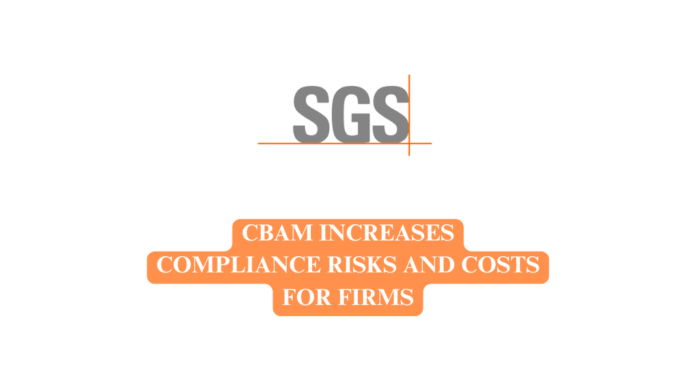The Carbon Border Adjustment Mechanism (CBAM) of the European Union (EU) is now in a reporting phase, with new rules that are set to influence global trade. Each business that exports carbon-intensive goods to the EU would now have to substantiate emissions or else pay penalties, suffer chaos in their supply chain, and lose reputation.
Compliance Measures Are Tougher
The CBAM was designed to integrate different approaches to carbon cost for EU producers and foreign suppliers. This mechanism will begin phasing in the 2026 CBAM regulations, beginning with the implementation of the reporting and verification of emissions on the key imports:
- Steel & Iron
- Aluminum
- Cement
- Fertilizers
- Hydrogen
- Electricity
Not meeting compliance would result in higher tariffs that would make exports less competitive.
Non-Compliance Risks
Specialists argue businesses not ready by then would have to deal with severe consequences. But the 2025 cut-off date does allow time to adapt.
- Financial Costs – Assumed or unrevised emissions reports could result in expensive carbon costs due to incorrect data.
- Contract Loss – European suppliers risk being compliant to the point of capturing market share from non-conforming firms, diminishing their market access.
- Damage to Reputation – The companies that ignore carbon reporting shifts have to face scrutiny from lawmakers, consumers, and investors, thus damaging their reputation.
Call for Urgent Compliance Action in Avoiding CBAM Penalties Jerónimo Casas, Global Product Manager at SGS related firm has explained this issue profoundly with a quote: “Failure to comply with CBAM is not merely about expenses; rather, it extends to contracts, reputation, and the long-run functionality of business.”
Achieving Accomplished Pre-compliance Verification
To prevent CBAM related risks, experts recommend pre-verification. Three critical hints include:
- Efficient Emissions Monitoring Systems – Create an emissions well-tracking system for every step of the production cycle.
- Provide Records for Manufacturing Operations – Make them sufficient for EU requirements.
- Meet CBAM Requirement – Adhere to the monitoring guideline to elude unnecessary expenditure.
Crawling Towards Deadline
In a world where time is scarce, companies need to change paradigms quickly or be forced out. Proactive steps to adhere CBAM regulations not only ticks boxes to avoid losses but guarantees position in chosen EU markets.


